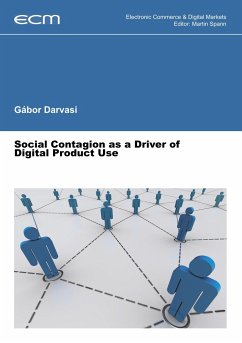Social contagion is ubiquitous in the day-to-day lives of consumers. Whether at home with their families, at work with colleagues, spending leisure time with friends, or even when only surrounded by strangers, consumers are always exposed to and influenced by the actions of others. The wide-scale use of digital communication technologies and online social networks has further exacerbated this influence by enabling more varied and intense ways to connect and interact. In the three essays constituting this dissertation, we ask how marketers and product designers can purposefully use social product design features to achieve superior managerial outcomes by harnessing social contagion. The first essay delineates the state-of the-art research on social contagion by systematically mapping the moderators of social contagion. The first essay delineates the state-of the-art research on social contagion by systematically mapping the moderators of social contagion and identifies avenues for future research. In the second essay, we identify social contagion through geographic contiguity in the repeated use of a low-involvement digital service and show that it can be nearly completely crowded out by marketing communication. In the last essay, we demonstrate that product design features can be used to induce joint consumption which in turn leads to social contagion and ultimately an increased level of product use.
Hinweis: Dieser Artikel kann nur an eine deutsche Lieferadresse ausgeliefert werden.
Hinweis: Dieser Artikel kann nur an eine deutsche Lieferadresse ausgeliefert werden.








